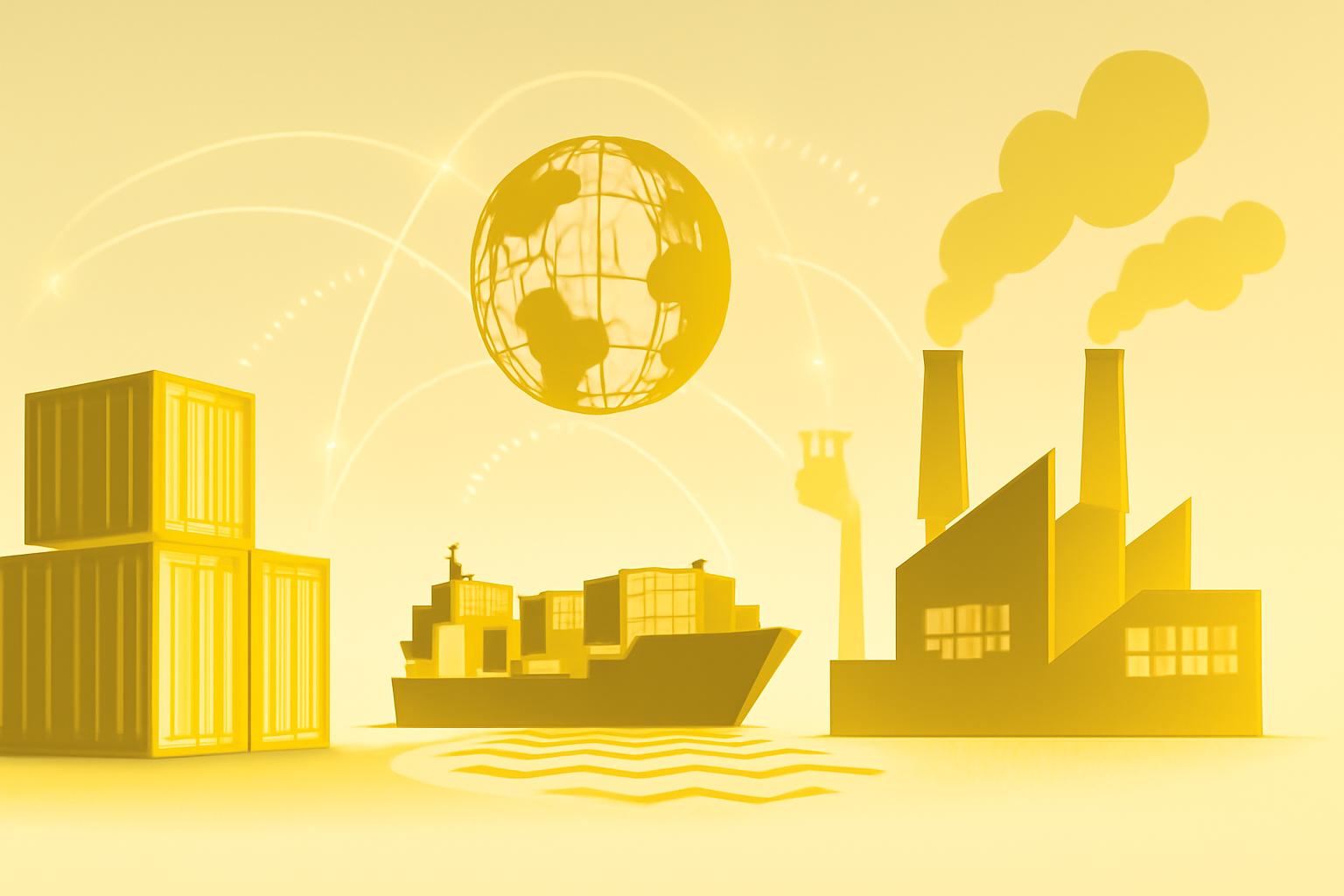EU’s Carbon Border Tax Set to Launch, Targeting Carbon-Intensive Imports
The European Union is poised to implement the world’s first large-scale carbon border tax, the Carbon Border Adjustment Mechanism (CBAM), on January 1, 2026. This landmark policy will impose costs on imports of carbon-intensive goods including steel, fertilizers, cement, aluminum, and hydrogen from outside the EU’s 27-member bloc. Importers will be required to purchase CBAM certificates reflecting the embedded carbon emissions of these goods, with prices aligned to the EU Emissions Trading System (ETS) market. This initiative is part of the EU’s broader strategy to reduce greenhouse gas emissions by at least 55% by 2030 and to promote cleaner industrial production worldwide.Rationale and Objectives Behind the Carbon Border Adjustment Mechanism
The CBAM aims to address the issue of “carbon leakage,” where companies relocate production to countries with less stringent climate policies, undermining global emissions reduction efforts. By putting a “fair price” on carbon emitted during production, the EU intends to level the playing field for domestic industries while incentivizing cleaner production methods internationally. Nicolas Endress, CEO of ClimEase, a CBAM-focused software provider, underscored that sectors such as steel, cement, fertilizers, and aluminum will be most affected initially. He emphasized that countries lacking their own emissions trading systems will face heightened exposure to the tax.International Backlash and Trade Tensions
The CBAM has sparked vocal opposition from major economies including the United States, China, India, Brazil, and Russia. The U.S. has expressed concerns that the tax could jeopardize trade agreements and expose American companies to “huge legal risks,” especially those involved in fossil fuel exports. India has threatened retaliatory measures, arguing that wealthy nations historically responsible for climate change should bear a greater share of emission reductions. Meanwhile, China, Brazil, and Russia have raised objections at the United Nations climate talks and through the World Trade Organization. The European Commission declined to comment on these criticisms when approached by CNBC.Implications for Trade and Climate Leadership
The CBAM represents a pivotal test of the EU’s climate leadership and its ability to enforce environmental standards without provoking significant trade retaliation. Alex Mengden, a policy analyst at Tax Foundation Europe, noted that the EU risks bearing the brunt of the policy’s economic costs if a global coalition on carbon pricing fails to materialize. The 15% tariff ceiling agreed upon in July between the EU and the U.S., significantly lower than previous threats, reflects ongoing negotiations to balance climate ambitions with trade relations.Global Impact and Future Outlook
Experts forecast that the EU’s CBAM could catalyze a worldwide shift toward carbon pricing, potentially covering up to 80% of global trade in the coming years. By penalizing countries without robust emissions frameworks and rewarding those aligned with EU standards, the mechanism may incentivize broader adoption of emissions trading systems. ClimEase’s Nicolas Endress concluded that industries in countries adapting to carbon pricing will maintain competitiveness, whereas those in lagging nations may face increasing barriers to export markets.FinOracleAI — Market View
The EU’s Carbon Border Adjustment Mechanism is a groundbreaking policy with far-reaching implications for global trade, climate policy, and international cooperation. While it aims to reduce carbon leakage and promote cleaner industry practices, it also risks escalating trade tensions and legal disputes.- Opportunities: Accelerates global adoption of emissions trading systems; incentivizes cleaner production; protects EU industries from unfair competition.
- Risks: Potential trade retaliation from major economies; disruption of global supply chains; legal challenges and increased compliance costs for exporters.
Impact: The introduction of the CBAM is a critical step in enforcing climate accountability in trade but requires careful diplomatic navigation to prevent fragmentation of international trade frameworks.













